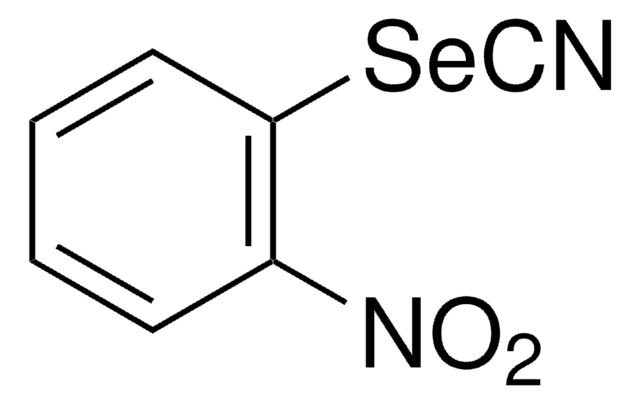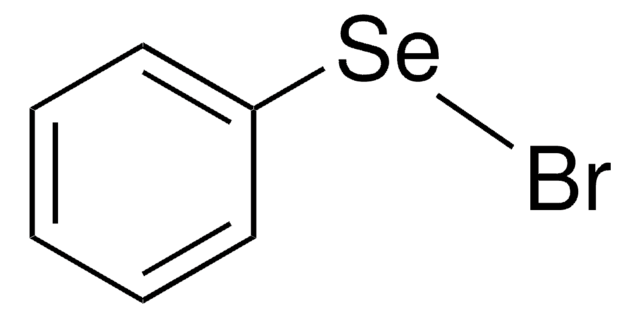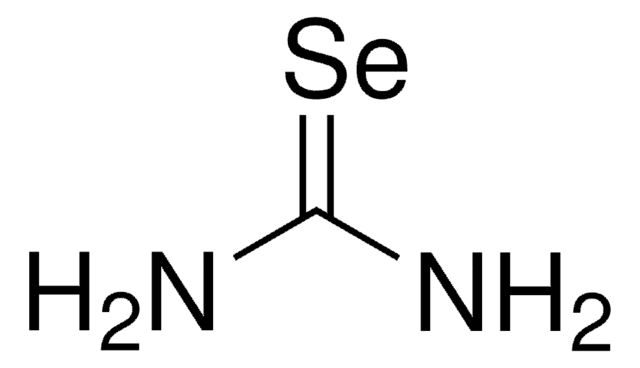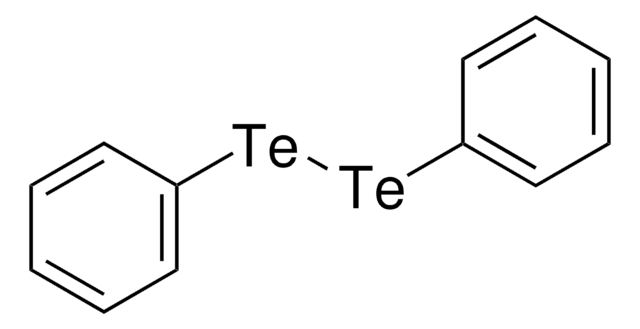498254
Phenyl selenocyanate
96%
About This Item
Productos recomendados
assay
96%
refractive index
n20/D 1.603 (lit.)
bp
116-117 °C/12 mmHg (lit.)
density
1.484 g/mL at 25 °C (lit.)
storage temp.
2-8°C
SMILES string
N#C[Se]c1ccccc1
InChI
1S/C7H5NSe/c8-6-9-7-4-2-1-3-5-7/h1-5H
InChI key
NODWRXQVQYOJGN-UHFFFAOYSA-N
General description
Application
- benzeneselenol esters
- 2-bromoethyl phenyl selenie dibromide
- α,α-dioxy-β-phenylseleno carbonitriles
- β-alkoxyalkyl phenyl selenide
signalword
Danger
hcodes
Hazard Classifications
Acute Tox. 3 Inhalation - Acute Tox. 3 Oral - Aquatic Acute 1 - Aquatic Chronic 1 - STOT RE 2
Storage Class
6.1A - Combustible acute toxic Cat. 1 and 2 / very toxic hazardous materials
wgk_germany
WGK 3
flash_point_f
228.2 °F - closed cup
flash_point_c
109 °C - closed cup
ppe
Eyeshields, Faceshields, Gloves, type ABEK (EN14387) respirator filter
Certificados de análisis (COA)
Busque Certificados de análisis (COA) introduciendo el número de lote del producto. Los números de lote se encuentran en la etiqueta del producto después de las palabras «Lot» o «Batch»
¿Ya tiene este producto?
Encuentre la documentación para los productos que ha comprado recientemente en la Biblioteca de documentos.
Los clientes también vieron
Artículos
For microbiologists the most fundamental stain was developed in 1884 by the Danish bacteriologist Hans Christian Gram.
For microbiologists the most fundamental stain was developed in 1884 by the Danish bacteriologist Hans Christian Gram.
For microbiologists the most fundamental stain was developed in 1884 by the Danish bacteriologist Hans Christian Gram.
For microbiologists the most fundamental stain was developed in 1884 by the Danish bacteriologist Hans Christian Gram.
Nuestro equipo de científicos tiene experiencia en todas las áreas de investigación: Ciencias de la vida, Ciencia de los materiales, Síntesis química, Cromatografía, Analítica y muchas otras.
Póngase en contacto con el Servicio técnico













